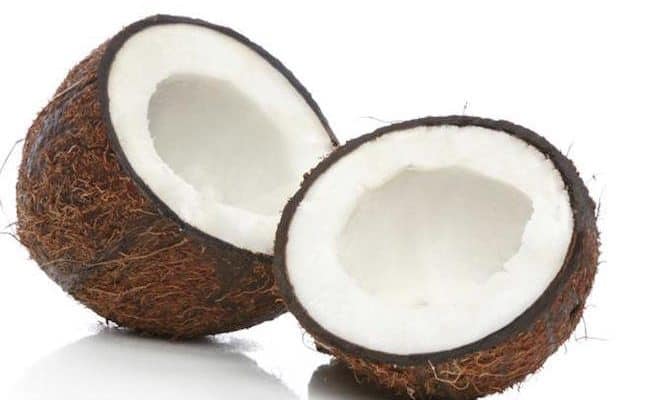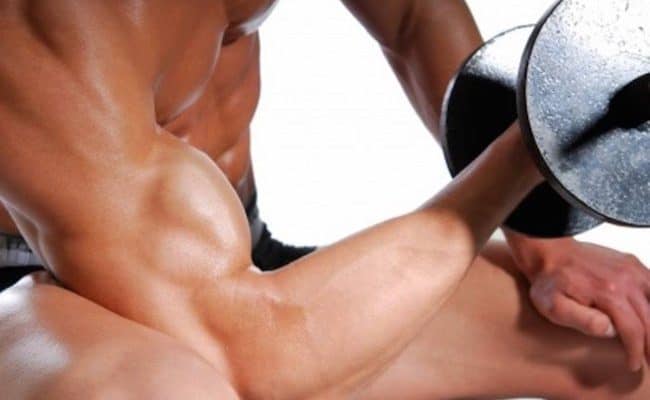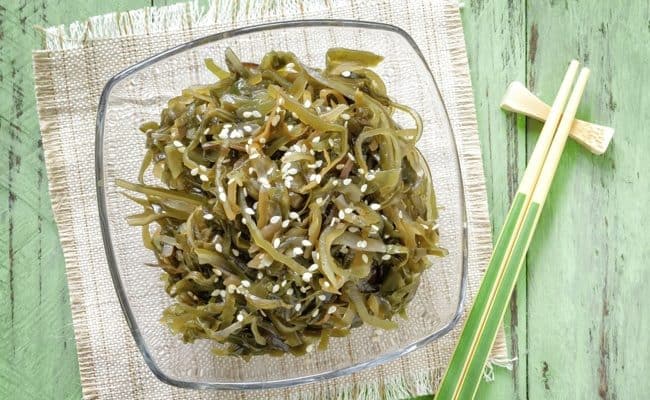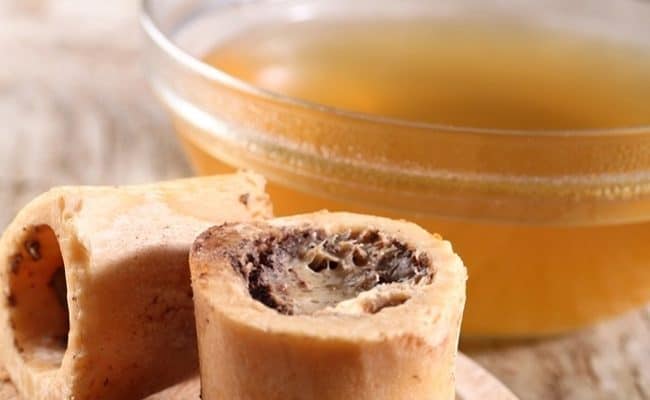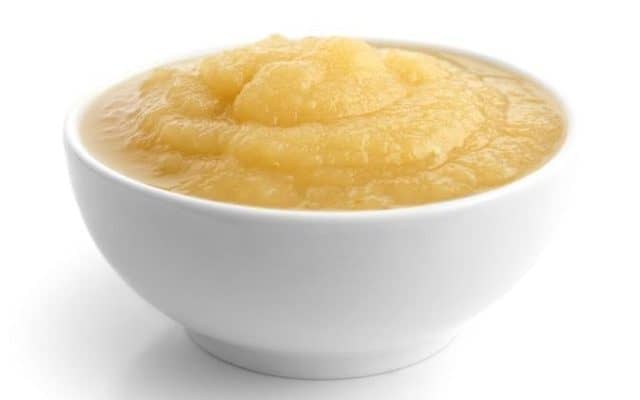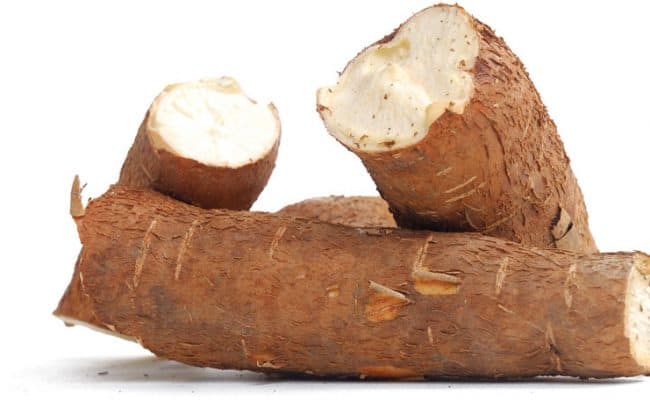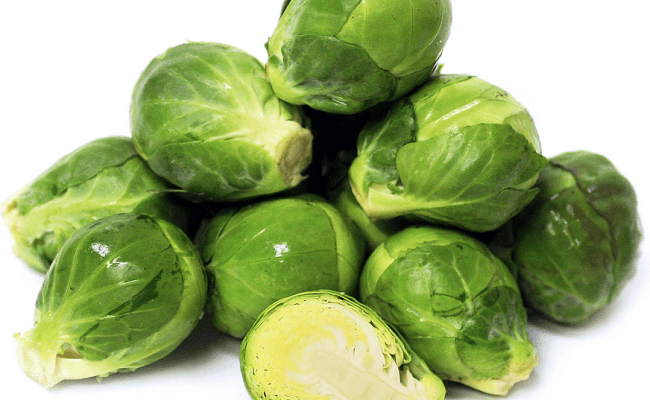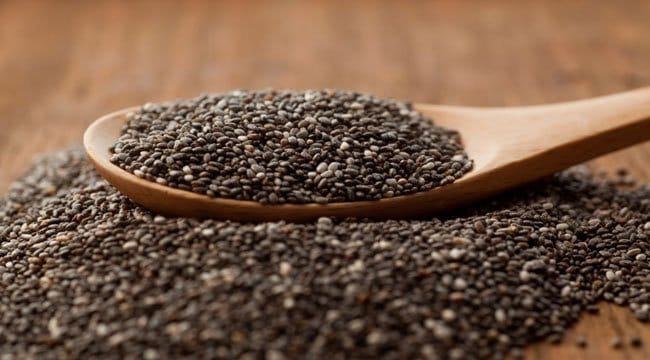
Chia seeds have been used by the ancient southwest Native Americans and Aztec civilization for centuries an easy fuel source on the go. In the past few years, chia seeds have made a comeback as a nutrition power house. Their combination of fiber, protein and omega 3’s puts these tiny seeds on top for large nutrition profile.
Fiber
About 2 tablespoons of chia seeds provides 10 g of fiber. The recommendation for fiber intake for women 19-50 years old is 25 g per day, and 38 g per day for men 19-50 years old. Getting enough fiber is important for health, as fiber is needed for heart health, proper digestive health and can aid blood glucose.
Most Americans fail to meet the recommendation for fiber. Adding just 2 tbsp of chia seeds per day could help you reach your fiber goal. Chia seeds contain soluble and insoluble fiber.
Soluble fiber can help lower cholesterol and aid in blood glucose regulation. Insoluble fiber is important for digestive health and can help prevent constipation.
Protein
Chia seeds are a vegetarian source of protein, about 2 tbsp of chia seeds have 6 gm of protein. Protein can increase satiety making you feel full longer. Protein is also necessary to repair tissue, make new cells and for fluid balance.
With the combination of fiber and protein, adding chia seeds to your diet can help you stay full longer and aid in glucose regulation. This may be one reason why the ancient Aztecs would snack on chia seeds as they were on the move.
Omega 3 fatty acids
Omega 3’s help lower inflammation in the body and can aid in thinning the blood. Both of these functions can lower risk for cardiovascular disease among other chronic diseases. Omega 3’s are found in fatty fish, nuts, flaxseed and chia seed.
Chia seeds are a rich source of omega 3’s. Americans tend to not get enough omega 3’s and get too many omega 6 fatty acids. Omega 6’s increase inflammation and increase clotting in the blood. Both nutrients are essential for humans, but having too many omega 6’s can cause an imbalance in inflammation.
Egg substitute
Vegans eat no animal products including meat, eggs, dairy and honey. In order to make a recipe vegan when cooking, finding an easy egg substitute could seem challenging. Combining chia seeds with water can be used as a vegan friendly egg replacement. To use chia seeds for an egg replacement, combine 1 tbsp of chia seeds with 3 tbsp of water.
Blend the water and chia seeds in food processor or spice grinder. Let sit for about 5 minutes until the chia seeds absorb the water, and it becomes gel like. This is the equivalent of an egg to use in recipes.
Chia seeds are mild in flavor, so you won’t taste it. You can make a vegan egg replacer out of flaxseeds, but it will give a slightly nutty flavor to the recipe. Chia seeds are also less grainy.
High in vitamins and minerals
Chia seeds are a source of iron, zinc, magnesium, manganese B vitamins, phosphorus and vitamin C. While most Americans get enough phosphorus, many Americans may be lacking on one or more of iron, zinc, magnesium and manganese.
How to use chia seeds
Chia seeds can be added to almost anything. Chia seeds absorb water and swell, so it is recommended to eat chia seeds with fluids. Chia seeds will swell and form a gel-like consistency.
Some people even put chia seeds directly in a water bottle and sip on it through the day. Start by adding 1-2 tbsp of chia seeds with 12-16 fluid ounces. Mix or shake occasionally.
Other uses for chia seeds include:
- Add chia seeds to oatmeal or yogurt
- Make chia seed pudding
- Add to soups for a thickener
- Stir in with dressing or sauces
When adding chia seeds to your diet, start slowly. As with any fiber, getting too much could cause gastric discomfort. As a general guideline, drink about 8 fluid ounces for 1 tbsp chia.
Chia seeds do not have to be ground, like flaxseeds, in order to get the nutrients. The human body can break down chia seeds whole. Some recipes may call for or some may prefer ground chia seeds for texture reasons.
Conclusion
Chia seeds are a good source of fiber, protein, omega 3’s, many vitamins and minerals. This may be especially beneficial for vegans, as they do not eat animal food sources rich in protein, omega 3’s, zinc and iron.
Chia seeds should be taken with fluid, as they absorb water. Don’t increase chia seed consumption drastically; instead increase your consumption gradually.
Get creative for ways you can use chia seeds. As they have grown in popularity, many recipes are available for things like chia seed pudding, chia crackers, chia drinks and even chia seed energy gels.
References used in this article
